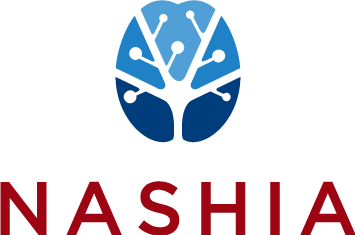State Government Assistance and Supports for Individuals Living with TBI
“Individuals with TBI are often ineligible for state intellectual/developmental disability (I/DD), mental health and special health care needs programs.”
Medicaid Balancing Incentive Program: Recommendations for Core Assessment Tools for Individuals with Brain Injury
“Over the years, States have designed systems, services and supports to address the cognitive and behavioral issues associated with brain injury. Many States expanded services through Medicaid home and community-based services (HCBS) programs, such as brain injury waivers or waiver programs designed for persons with other disabilities.”
Mt. Sinai: A Guide to Resources to Address TBI within Juvenile Justice Systems in the United States
“Opportunity lost” seems an apt characterization of many juvenile justice systems (JJSs) in the United States, in terms of learning about and addressing the needs of youth with TBI under their jurisdiction.
Colorado Criminal Justice and Brain Injury
“The Brain Injury Alliance of Colorado (BIAC) envisions our state to be one in which all survivors can thrive, including those that have been or are currently involved in the criminal justice system.”
Special Education & Traumatic Brain Injury (TBI)
A summary of State definitions and guidance for educating students with TBI-related disabilities, produced by the National Association of State Head Injury Administrators.
NIH Suicide and TBI Among individuals Seeking Veterans Health Administration Services
Objective: To examine associations between history of traumatic brain injury (TBI) diagnosis and death by suicide among individuals receiving care within the Veterans Health Administration (VHA).
Building Statewide Infrastructure for Effective Education Services for Students with TBI
Published in the Journal of Head Trauma Rehabilitation, and featuring NASHIA Director of Technical Assistance and Special Projects Judy Dettmer as lead author, this white paper presents the group's consensus on the essential components of a statewide educational infrastructure to support students with traumatic brain injury across the spectrum of injury severity.
HELPS Brain Injury Screening Tool
The original HELPS TBI screening tool was developed by M. Picard, D. Scarisbrick, R. Paluck, 9/91, International Center for the Disabled, TBI-NET, U.S. Department of Education, Rehabilitation Services Administration, Grant #H128A00022. The Helps Tool was updated by project personnel to reflect recent recommendations by the CDC on the diagnosis of TBI.
Alabama Report on TBI and Juvenile/Criminal Justice Systems
“The ADRS State Head Injury Program convened a second meeting: “Traumatic Brain Injury in the Criminal Justice & Juvenile Justice Systems” with representatives from ten states in December 2017 in Birmingham, Alabama. The purpose of this meeting was to share lessons learned and draw conclusions regarding challenges faced by states in addressing the four barriers identified by HRSA in delivering services for individuals with TBI in these systems.”
10 Things to Know About Medicaid
“Medicaid is the nation’s public health insurance program for people with low income. The Medicaid program covers 1 in 5 Americans, including many with complex and costly needs for care. The program is the principal source of long-term care coverage for Americans.”
ACL: What Do Older Adults and Individuals with Disabilities Need to Know
Older adults and people with certain underlying medical conditions are at increased risk for COVID-19 illness. Residents of nursing homes or other long-term care facilities may also be at increased risk.
Roads to Recovery: Overdose and Brain Injury
When a person overdoses, their respiratory system is suppressed. If they survive, it's likely they will live with some level of anoxic brain injury. The problem is the brain injury can impede treatment and recovery because of cognitive impairment and the loss of impulse control.
INROADS at Brandeis University
The Institute for Behavioral Health (IBH) is the largest of three institutes housed in the Schneider Institutes for Health Policy within the Heller School for Social Policy and Management at Brandeis University.
Emotional Problems After Brain Injury
A brain injury can change the way people feel or express emotions. An individual with TBI can have several types of emotional problems.
Brain Injury and Opioid Overdose Fact Sheet
Substance use/misuse is often a contributing factor to brain injury. A history of abuse/misuse is common among individuals who have sustained a brain injury.
This fact sheet provides an overview of brain injury and opioid overdose, as well as recommendations for prevention and treatment.
ODEP and VA TBI and Employment
“TBI” is an umbrella term that spans a wide continuum of symptoms and severity. In fact, the large majority (80%) of combat head injuries sustained in Operation Iraqi Freedom and Operation Enduring Freedom are mild concussions as opposed to severe, debilitating TBIs.
Maryland Resource Coordination Handbook
This handbook is intended for use by human service professionals including; mental health professionals, case managers, clinicians, therapists, special educators and transitioning specialists.
HUD Information for Disabled Persons
This page is designed to answer frequently asked questions on the housing rights of people with disabilities and the responsibilities of housing providers and building and design professionals under federal law.
Colorado Provides Affordable Housing for Homeless with Brain Injury
Brothers Redevelopment and the Brain Injury Alliance of Colorado got approval from the Denver City Council Monday to move forward with a plan to provide affordable housing for those experiencing homelessness who are also suffering from a brain injury.
Alabama Fact Sheet: Workforce Accommodations
Research studies on the incidence of traumatic brain injury in domestic violence cases have revealed: greater than 90% of all injuries secondary to domestic violence occur to the head, neck or face region.




















